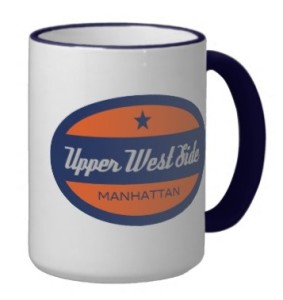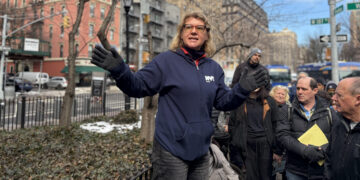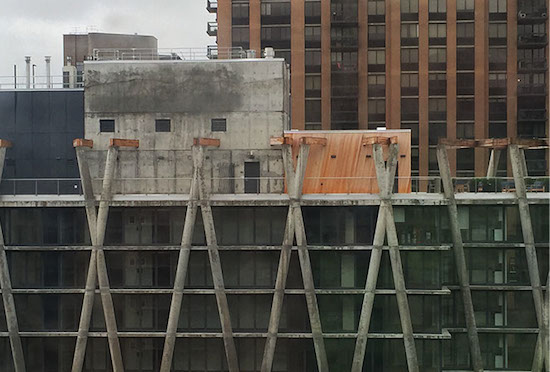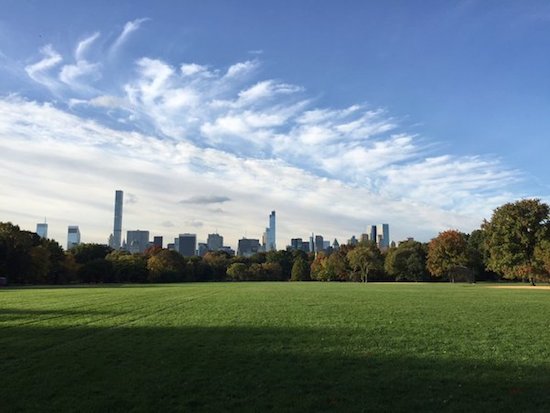By Arlene Kurtis
By 1961, Carmine DeSapio had been the boss of Tammany Hall for twelve long years, and the public had enough of his cronyism and patronage. Fifteen Reform Democratic clubs decided to make a concerted effort to end Tammany and DeSapio’s reign.
 On the Upper West Side, two important clubs were the Riverside Reform and the FDR-Woodrow Wilson Democratic club of which I was a member. We met on the second floor of an old taxpayer structure but much of our work was going door to door. First, we had to round up enough signatures to enable us to put names on the ballot. I solicited a young doctor I knew, Larry Schwartz, to sign the petition. He declared he had no use for politics. When I explained that he would have no one to vote for in the general election except the Tammany hack, but if instead he helped our candidate have a line, he would have a choice in the primary. He agreed to sign. Once we had our lines, we needed to convince the neighbors to vote for our candidates.
On the Upper West Side, two important clubs were the Riverside Reform and the FDR-Woodrow Wilson Democratic club of which I was a member. We met on the second floor of an old taxpayer structure but much of our work was going door to door. First, we had to round up enough signatures to enable us to put names on the ballot. I solicited a young doctor I knew, Larry Schwartz, to sign the petition. He declared he had no use for politics. When I explained that he would have no one to vote for in the general election except the Tammany hack, but if instead he helped our candidate have a line, he would have a choice in the primary. He agreed to sign. Once we had our lines, we needed to convince the neighbors to vote for our candidates.
The idea of holding Coffee Klatches was the creative genius of Irving Wolfson, an insurance executive who lived on Central Park West and belonged to the club. Members agreed to host Coffees in the homes and invite neighbors over. Young lawyers from the club and our candidates spoke at these gathering, The Klatches were a big success. Some came to check a neighbor’s decor, others to listen to the speakers or to nosh on goodies the hosts put out. But robust discussions continued in lobbies and on the block.
The Klatches did more than elect ‘reformers’ to office, it made our neighborhood into a small town. Networking increased, people greeted each other on the street and in elevators. This was face-to-face before there was Facebook. Our efforts were successful city-wide. Tammany Hall was R.I.P.
The Village Independent Democratic club made Ed Koch district leader. Uptown, Irving Wolfson became our district’s leader. We sent Ted Weiss and William Fitts Ryan to the U.S. House of Representatives. Fred Ohrenstein, of our club, was elected to the New York State Assembly in 1961, became its leader and served until 1994. Among his many legislative achievements was the law that required the landlords of each building to install lights on either side of the entry so that a person arriving home in the dark could be safe.
Fred Ohrenstein, at this writing is 90, but most of these folks are gone. Irving and Ellen Wolfson have passed away. Their daughter, Nora, and I reminisced about those days. I believe Irving’s legacy is a friendlier West Side, where people now visit over lattes or perhaps a few coffee klatches.
Arlene Kurtis is the author of “Lila’s Hamsa: A Novel of Love and Deception.”
For other weekend history columns, click here.
Image of an Upper West Side mug via Zazzle.









Where can I get that mug?
My father, Arnold Silberstein, an attorney on the Upper West Side was involved in the Democratic Club. He was very proud of the work you all did.
We visited Bill Ryan in Capitol Hill. He gave us a tour, which was thrilling for a nine-year old girl.
Sharon, Did you mother work for famous Fifth Avenue jewelers? If so, then that’s the Silbersteins we knew. Stanley would be your brother.
Arnold Siberstein is a familiar name to me. I’m sure our parents knew each other! My parents were Irving and Ellen Wolfson. Ring a bell?
Yes! Where can I get that mug??? Love it!
Here ya go:
https://www.zazzle.com/upper_west_side_ringer_coffee_mug-168929034490314738
Thanks! Love it too!
Thank you, Arlene, for that wonderful window into the history of the UWS. Because of the dedication of a relatively small band of committed and engaged individuals, like yourself, a lot of important changes came to the West Side. Just a few that I know of: no more stuffed ballot boxes at election time and a strong push to clean up the tenements AND offer housing to the disadvantaged.
Arlene, what a great description of our FDR-Woodrow-Wilson adventure! Meetings always lasted very late into the night. I recall also the activity in the 2 playgrounds with the mothers counting petitions and assigning canvassing routes etc.
It did indeed create a warmly connected community, and got huge numbers of voters out for National Elections.